Barbara DeLollis notes that bringing on New York hotels is really, really hard not least of which because of labor negotiations.
The old 487-room Ramada Plaza hotel has been closed for 5 years. The property is owned by the Port Authority of New York and New Jersey which doesn’t help matters. And they haven’t been able to come to terms on a labor agreement.
Hotels in New York, and many Northeastern cities (and to a certain extent California) are faced with highly restrictive union agreements that play out in some interesting ways. A hotel may have to close down an entire service like a restaurant or room service in order to re-negotiate labor conditions or wages — lay off workers since the service is no longer offered and then bring the service back under new terms. Rather than continuing to employee people and offer guests the service in the meantime. In some cases this keeps wages high (the hotel doesn’t go through this very costly process) and in others means less employment and fewer services offered.
All complex, and not delving into a normative view on how all this plays out. Just interesting to see it getting in the way of making JFK — one of the very worst airports in American — incrementally better.
JFK could use more renovated hotels, to be sure, but that won’t solve its biggest problems.
Here’s how to choose an airport hotel.
Airport hotel preferences begin with (1) attached to the airport, and then (2) if there is no hotel attached to the airport the one most recently renovated.
Back in 2007 the best property was the Hilton Garden Inn. That was surpassed by the Sheraton, which wasn’t very good for a Sheraton but still better. And for the past few years the best has been the Hilton.
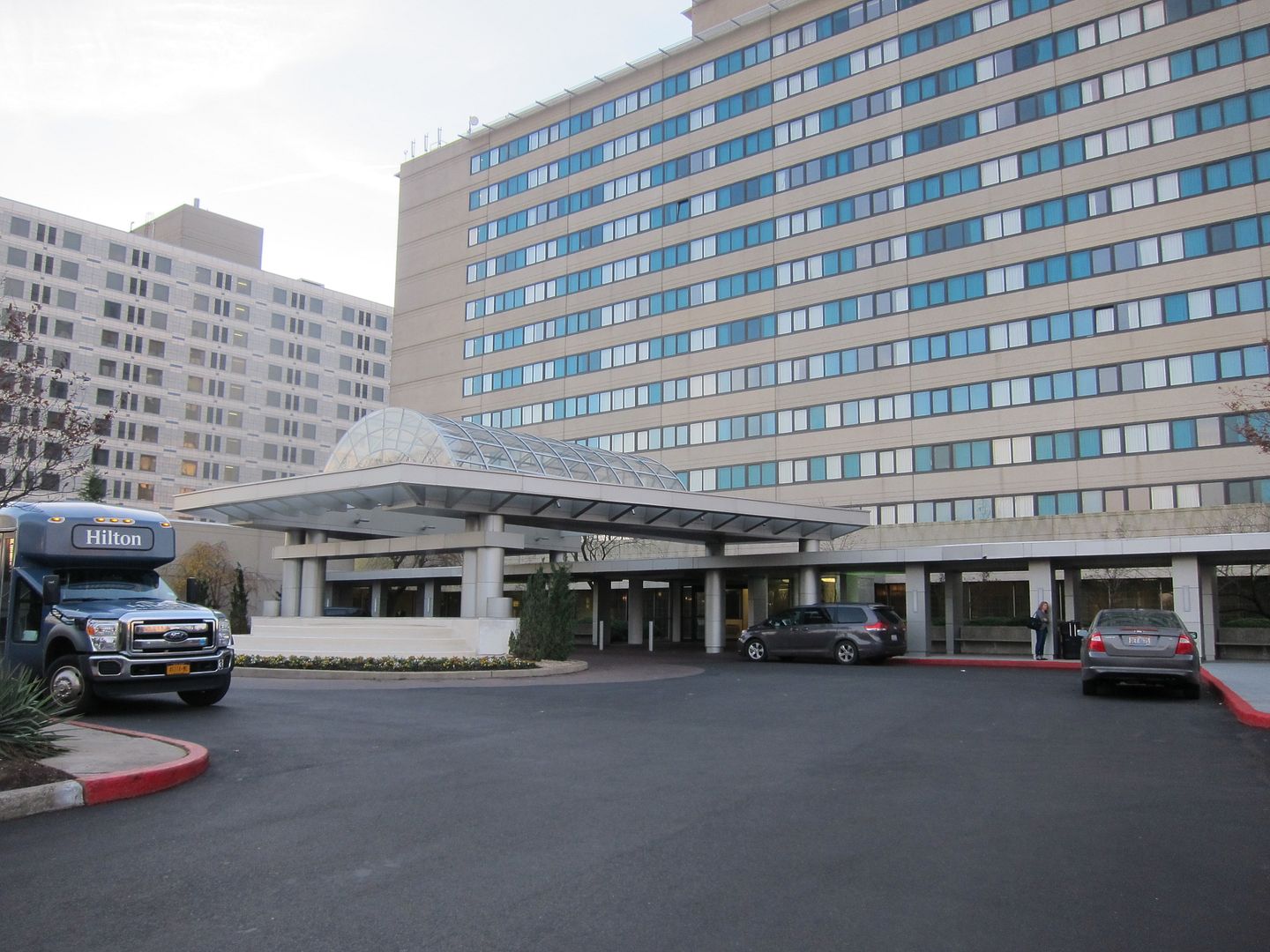
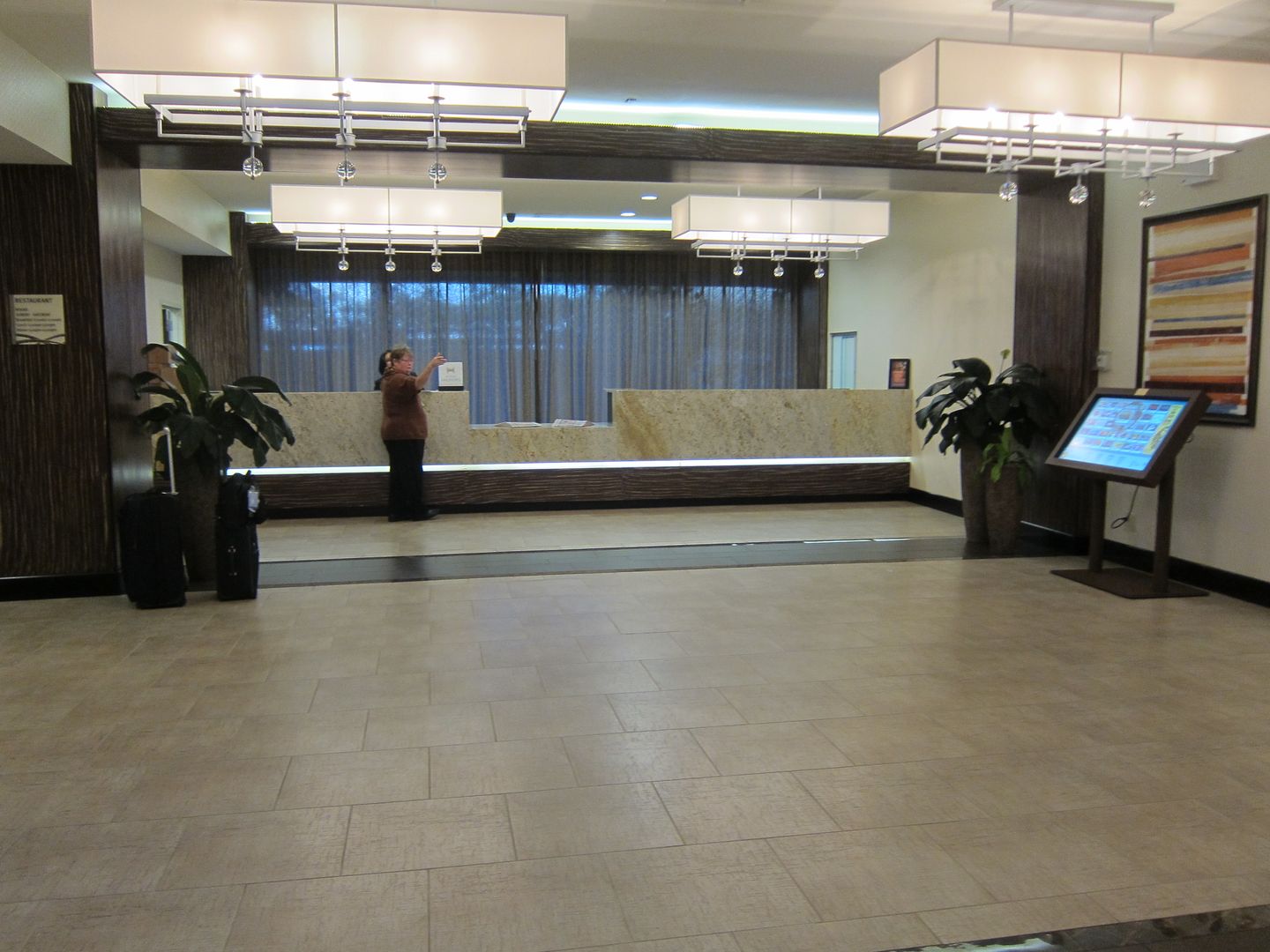
JFK is plagued with many, many problems. One of those is that in order to get a shuttle out of the airport you first have to schlepp your baggage on the airport train, to be taken out to where they allow pickups. After long international flights, where you often need an airport hotel, this is definitely unpleasant.
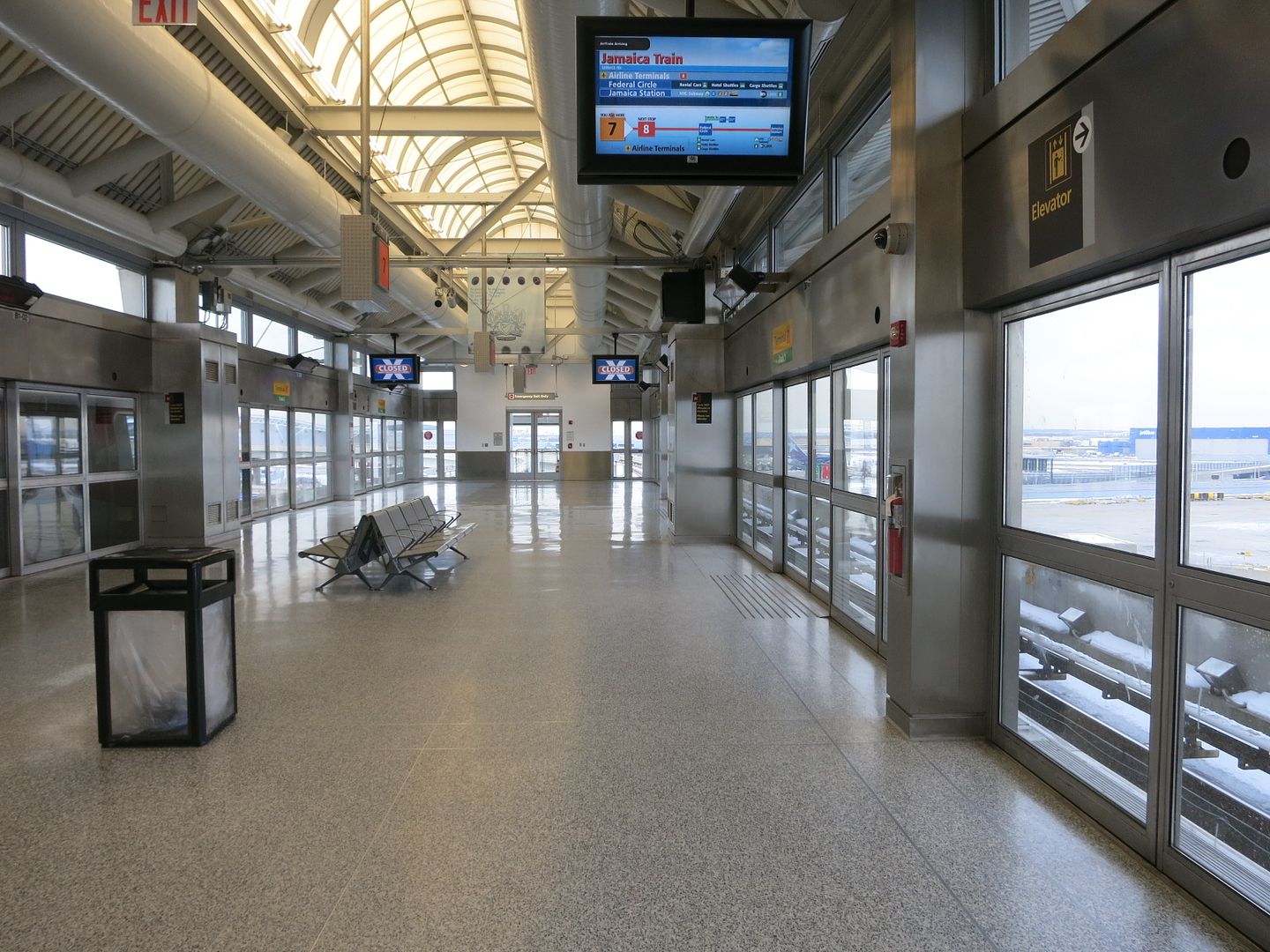
The train that takes you between terminals also has a stop for hotel shuttles. Hotel shuttles don’t pick you up at each terminal, you have to go to a single collection spot. That’s never fun with checked bags, to take them upstairs to a train in order to catch a van. But that’s JFK.
The wait for the train headed in my direction wasn’t long, and shortly we were leaving the terminal 7 station and enroute for the quick trip over to terminal 8 where American Airlines is housed.
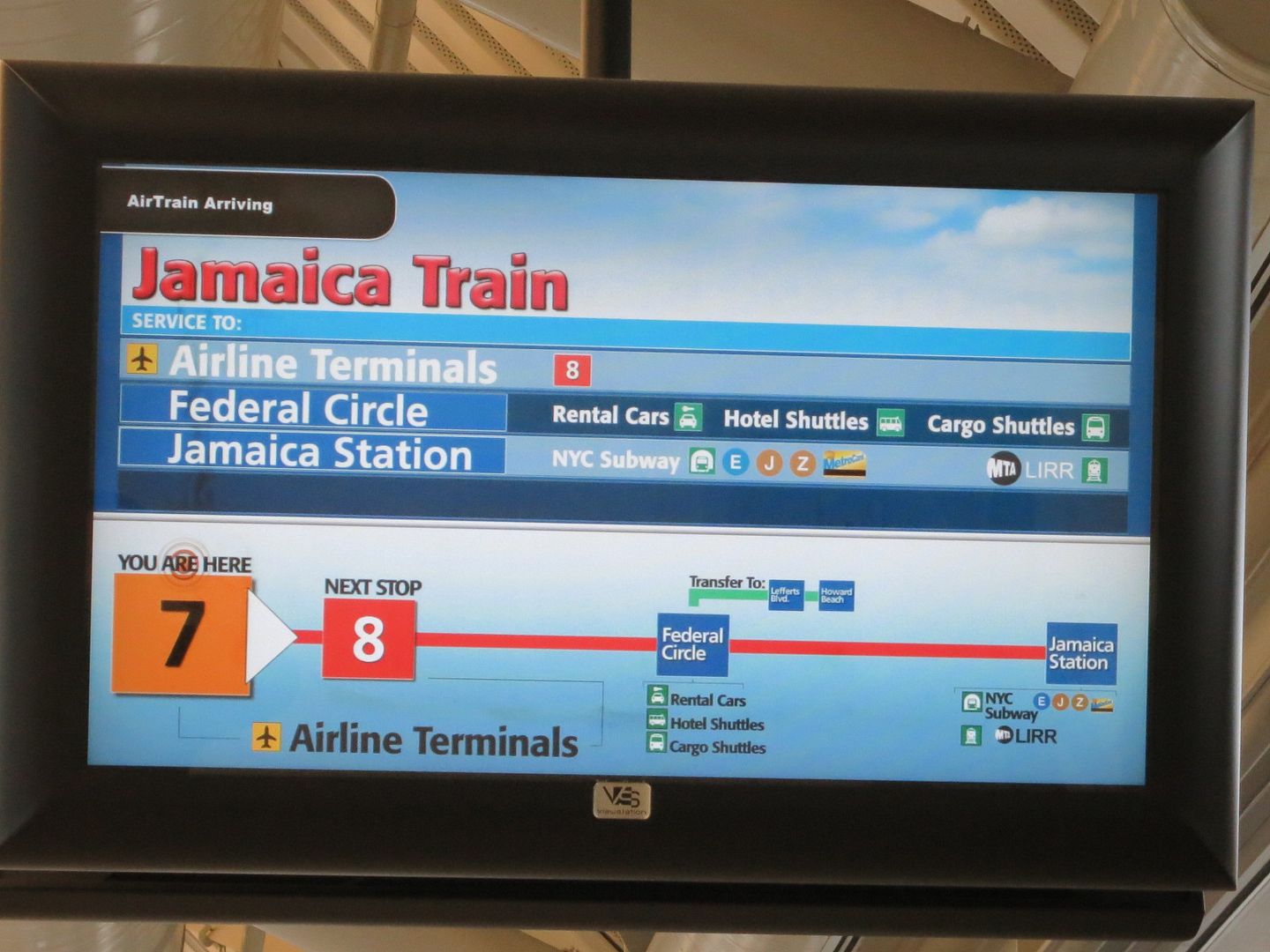
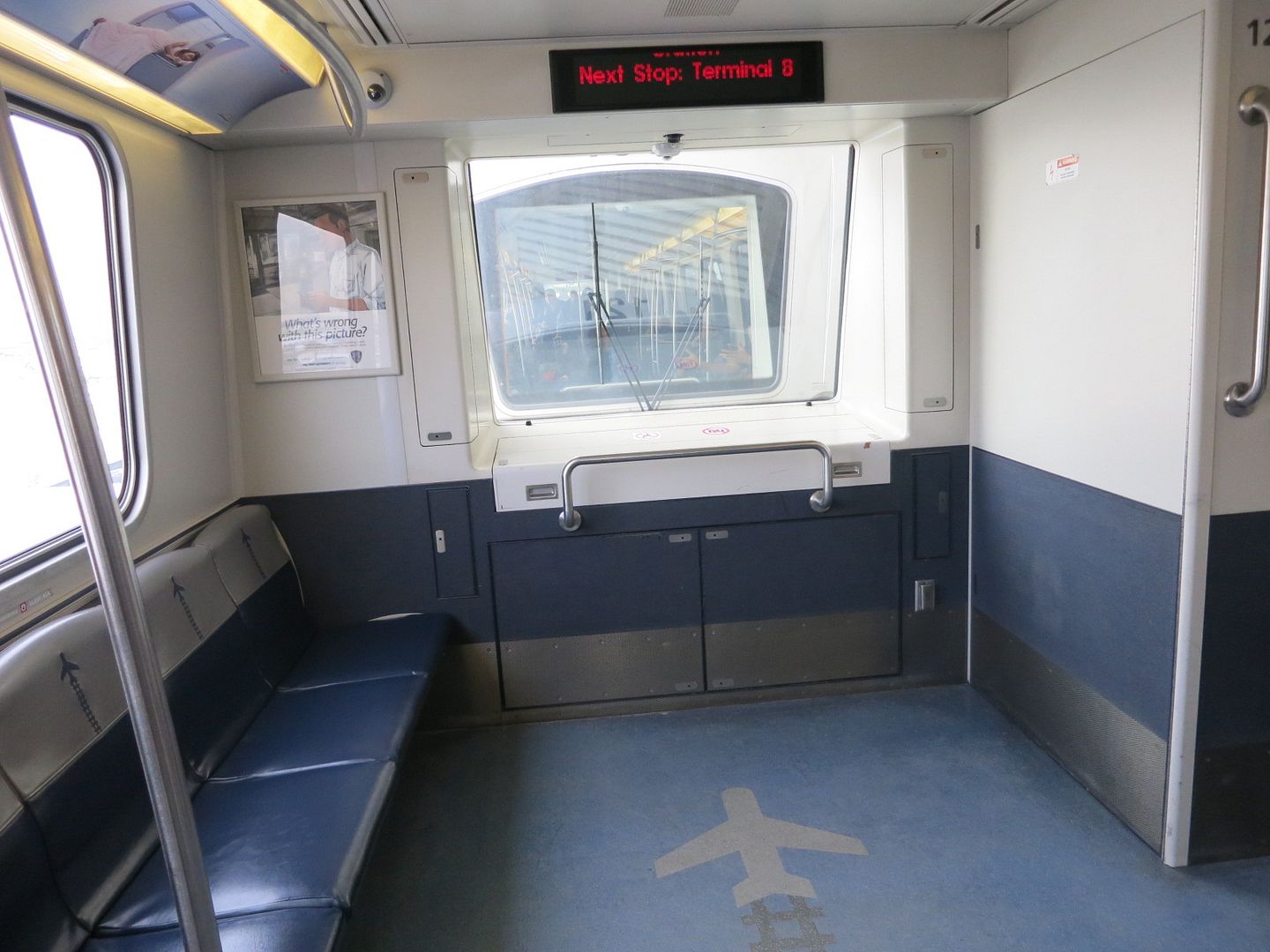
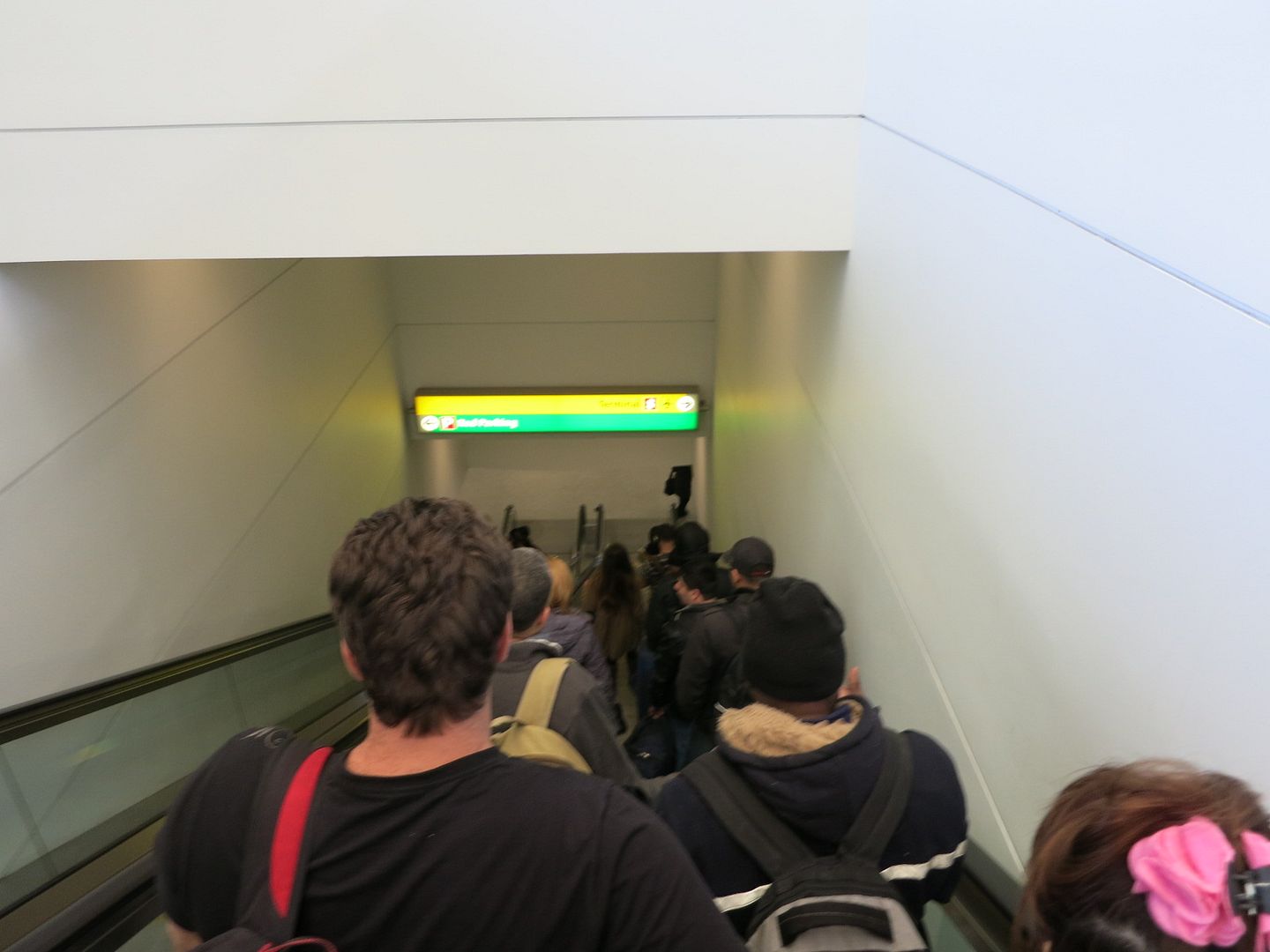
- You can join the 40,000+ people who see these deals and analysis every day — sign up to receive posts by email (just one e-mail per day) or subscribe to the RSS feed. It’s free. You can also follow me on Twitter for the latest deals. Don’t miss out!


The best solution in just to avoid JFK.
Gary – have you ever stayed at the Yotel Terminal 4 at Heathrow? Any problems getting to Terminal 4 from Terminals 1, 2, 3, 5 for the overnight? What is your “favorite” hotel at Heathrow for an overnight? Thanks.
Yeah, JFK is often unavoidable but I have had a few recent flights to Europe where I have been able to transit through BOS instead of JFK. BOS has far fewer flights but if the times work it is so much more pleasant than transiting JFK, especially if one doesnt have access to the nice lounges at JFK.
What Nick said. I’d connect twice domestically coming and going to simply avoid JFK. Unless I lived in Queens…..
I’ve spent 5 hours at the Yotel at LHR. Great concept but they built it out of pre-fab materials so you hear a lot of footsteps on clunking floors. Also there are automatic doors that make a fair amount of noise as the maids go back and forth to do their work. And yes The crazy LHR metro sequencing fines into play here.
All in all, not worth it to me for s long layover during the day.
“Airport hotel preferences begin with (1) attached to the airport, and then (2) if there is no hotel attached to the airport the one most recently renovated.”
Good advice.
Goes without saying, ‘must have an airport shuttle’.
I saw (on an FT thread?) a proposal: No hotel should be allowed to have ‘airport’ in their name if they do not offer a shuttle (or are attached to the terminal, of course).
@bobbieeddie – favorite hotel at Heathrow is the Sofitel and it’s not spectacular, but is attached to T5. I haven’t stayed at the Yotel. In t4 I’d presumably stay at the Hilton
Agree that recent renovations are helpful. I still remember that well-used room in Glasgow with plumbing controls barely hanging by a thread.
Any tips on finding out the most recent renovation dates?
I know I’ll probably get a lot of backlash for this but I am from there so I think I can say this…. it’s a SEWER. Get out!!! PS – I STILL LOVE NEW YORK!
Wait you are blaming the problem on unions? Have you ever been to Miami? There are no hotel or taxi unions in Miami, its just politics and hotel owners who care little about customer service that ensure that service and Hotels stink in MIA. This is true in lots of places. Its not unions its usually corporate elites who own the hotels and the taxi medallions and so on and etc that ensure that the airports suck. This article is sadly not related to travel and mostly just ideological gobbed gook.
Correction .. the train that takes you to the subway or the LIRR has a stop (Federal Circle) where you connect to other shuttles and rental car lots. The inner train that just stops at the terminals does not stop there.
That’s what some people call it the Port OF Authority.
@Unions? what? – if you read my post I do not blame all problems on unions, I note that one specific hotel in New York has a labor negotiation issue, go on to talk about how those are issues in the Northeast generally and do not ever say those are the only problems faced anywhere…
New York’s hotels are at record occupancy rates, and are adding rooms faster than pretty much any other city. 11,000 more rooms will be available within the next two years.
Far from unions being an impediment to hotel building, the unions have been extremely supportive of developers and the industry in general. Wages are generally fair (although a union housekeeper still earns less than $50,000 a year in this city), and the industry is booming.
Your mentioning of the unions is utterly irrelevant to your post.
@joe no, it’s the argument the article makes about the specific hotel, and then it was worth explaining how the negotiation process makes for ‘interesting’ decision-making in that market.
The Hampton Inn (part of Hilton HHonors) was also a good hotel at JFK. Looking for luxury to satisfy means is really not available at JFK. Just go in with no-frills.
Hotels in NY are heavily taxed, and the culture of the people living in the area is generally rude, mostly racist against one-another, and just outside the realm of an International airport. Thus one has to “know the area and how it works”.
I thought the Hilton Garden Inn at JFK was awful. The Holiday Inn Express was the best for my needs when it was only 10,000 Priority Club Points (but now it is 35,000 which is just ridiculous). Hampton Inn was my last stay and I thought it was terrific. Both give free B-fasts.
Just take what you get, then fly out.
@ Gary – Your words “Barbara DeLollis notes that bringing on New York hotels is really, really hard not least of which because of labor negotiations” did not reflect my reading of her piece, which refers to ONE hotel at ONE location – and never refers to “bringing on New York hotels” in general.
The conclusion was, in fact, yours, and it’s incorrect. As I noted, it’s not hard to bring on hotels in New York. The large number of new hotels and rooms that have opened here in New York over the past three years, and in the next two, is the evidence. Labor unions are not considered an impediment by the developers and, if they are, it is considered a small one next to the ridiculous real estate prices, among other things.
I would argue that the Ramada Plaza at JFK is an outlier, and evidence of no larger trend. And as one of the last guests there before it closed, I can attest to the need to demolish it entirely.